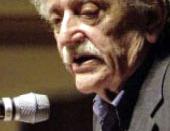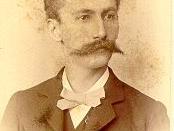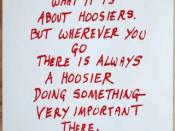Dehumanization in Kurt Vonnegut's "Harrison Bergeron."
"The year was 2081, and everybody was finally equal," the story begins. "They weren't only equal before God and the law. They were equal in every which way"(1354). In this haunting story, Vonnegut probably wanted to warn our society of similar kind of equality, equality that can be fatal for human race. In this work the theme is only a minor feature and is not really developed. The idea probably intrigued Kurt Vonnegut and forced him to develop it into a short story. Those who are familiar with Kurt Vonnegut's writing will certainly recognize some other themes of this story. For example, the fear of de-humanization of human beings, being stuck in amber (Harrisons inability to overthrow the system) and so forth. In "Harrison Bergeron", Kurt Vonnegut presented a scary view of a future society, where everyone was equal. "Nobody was smarter than anybody else.
Nobody was better looking than anybody else was. Nobody was stronger or quicker than anybody else" (1354).
It was the job of the agents of the United States Handicapper General to keep it this way. Beautiful people had to wear ugly masks. People not heavy enough had to wear handicap bags full of lead. Clever people had to wear a radio in their ear tuned to the government transmitter, which sent out sharp noises to keep people from taking advantage of their brains. "Every twenty seconds or so, the transmitter would send out some sharp noise to keep people like George from taking unfair advantage of their brains" (1354). It was a world where competition was the greatest of sins. I think that this view can be very easily related to modern society. People are striving for equality of some kind--equality of races, sexes etc.


